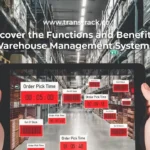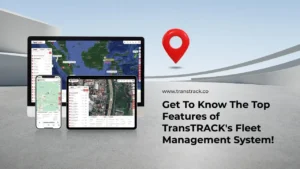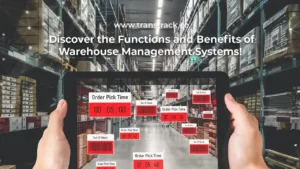6 Differences between Agents and Distributors You Must Know!
Posted on November 6, 2023 by Nur Wachda Mihmidati

In the business world, we often hear the terms agent and distributor. However, do you know what are the differences between agents and distributors? Both play an important role in the process of distributing goods to consumers. Although both have a role in distribution of goods, they still have differences.
The difference between agents and distributors is still not well understood by some people. In fact, it is not uncommon for people to assume that they are the same thing. To clear up the confusion, TransTRACK will try to explain it in this article. This article will provide a deeper understanding of what a distributor is, what an agent is, and the differences between the two.
Definition of Agent
An agent is a representative or mandatary of a manufacturer or distributor. Agents act on behalf of the entity they represent and focus on selling and marketing products. Agents have a strong relationship with the entity they represent and play a role in promoting products, collecting orders, and providing customer service.
Agents do not have ownership of the products they sell, they simply facilitate the sales process between the manufacturer or distributor and the end customer. Those who act as agents also do not always have to be in the form of shops or stalls, but can also be employees or self-employed.
Definition of Distributor
Distributors are intermediary entities that play a role in distributing products from manufacturers to end consumers. They act as a key link in the supply chain and have the important task of managing inventory, delivering products to the point of sale, and building relationships with customers.
Distributors usually buy products from manufacturers in bulk and then sell them in smaller quantities to agents, retailers or end customers. They have control over the stock of products they distribute and must ensure products are consistently available.
Differences between Agents and Distributors
To better understand both, here are some important differences between agents and distributors that you need to know:
Product Stock Ownership
Distributors: Have ownership of the stock of the products they distribute. They buy products in bulk and store them in their own warehouse.
Agents: Agents do not have ownership of the product stock. They act as representatives and sell products owned by manufacturers or distributors to end consumers.
Distribution Responsibilities
Distributor: Responsible for managing, storing, and distributing physical products to agents, retailers, or end customers.
Agent: Agents are responsible for marketing products, collecting orders, and establishing relationships with customers. They are not involved in the physical management of product stock.
Customer Relationship
Distributors: Have a more limited relationship with the end customer, as their main focus is on the management and physical distribution of the product.
Agents: Agents have stronger relationships with end customers as they interact directly, provide services, and promote products to customers.
Sales Volume
Distributors: Tend to sell in bulk, often in pallet or container quantities.
Agents: Agents are more likely to make sales in smaller quantities, focusing more on the daily needs and specific preferences of customers.
Profits and Margins
Distributors: Distributors may benefit through price differences, between the wholesale purchase price and the sales price to agents or retailers.
Agents: Agents usually earn a commission or margin based on the sales they make. Their profit depends on their sales performance.
Application of Fleet Management System for Agent and Distributor Business Optimization
One important aspect in optimizing the business of both is the use of sophisticated technology. Fleet Management System (FMS) TransTRACK is one of the solutions that can help improve efficiency in the distribution of goods from manufacturers to distributors or from distributors to agents.
Fleet Management System is software specifically designed to monitor and manage company vehicles and assets. In both contexts, FMS can provide significant benefits in the form of:
Vehicle Tracking
FMS allows real-time monitoring of the vehicles used in distribution. This helps both optimize delivery routes and ensure on-time delivery.
Fuel Consumption Monitoring
With FMS, vehicle fuel consumption can be properly monitored. This helps identify fuel-intensive vehicles and take necessary actions to reduce operational costs.
Vehicle Maintenance
Furthermore, FMS can provide periodic maintenance alerts for vehicles. This ensures the vehicle is always in optimal condition, reducing the risk of breakdowns and delays in delivery.
Increased Security
Another important benefit is that FMS can help improve vehicle security by providing alerts in case of incidents or unwanted events such as loss or theft.
Cost Optimization
With the data analysis provided by FMS, they were able to optimize their operational costs, including fuel consumption, vehicle maintenance, and time on the road.
The implementation of FMS allows them to work smarter rather than harder. With accurate data and informed decision-making, they can optimize operations, reduce costs, and improve customer service.
This technology not only provides financial benefits, but also helps in protecting the environment by reducing emissions and excessive fuel usage. With the implementation of FMS, agents and distributors can become more competitive in the ever-changing business world.
In the world of distribution, both have unique and important roles. Distributors have ownership over product stock and focus on managing physical distribution, while agents act as representatives of manufacturers or distributors with a focus on marketing and customer relations. Understanding the differences between agents and distributors is key to managing a distribution business efficiently. Hopefully, this article can give you a better understanding of the differences between agents and distributors, and help you manage your distribution business more optimally.
Recent Post
Topic :
 Bahasa Indonesia
Bahasa Indonesia









